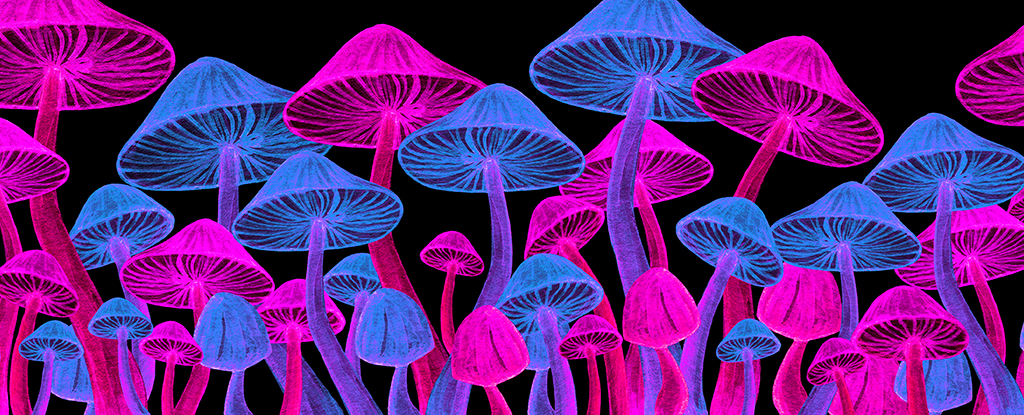The psychedelic drug psilocybin (as found in ‘magic’ mushrooms) has promising potential as a treatment for the eating disorder anorexia nervosa, according to new research that looked at its effects on an animal model of the condition.
Psilocybin appears to free up the brain enough to break out of the rigid patterns of thought which are a hallmark of the disease. It’s already used to treat depression, and clinical trials are underway to evaluate its safety in treating people with anorexia.
Researchers led by a team from Monash University in Australia took a closer look at how psilocybin affects the brain when it comes to diet and exercise behaviors – to try to find out more about its effectiveness for the condition.
“A mechanistic understanding of the actions of psilocybin is required to tailor the clinical application of psilocybin to individuals most likely to respond with positive outcomes,” write the researchers in their published paper.
“This can only be achieved using incisive neurobiological approaches in animal models.”
The animal model involved observations using rats that were given unlimited access to exercise (via a running wheel) but limited access to food, a widely used standard for mimicking anorexia in animals.
There were two key findings: first, psilocybin seemed to help the rats stick to a healthy body weight, even with eating restrictions. Second, it also enhanced what’s called cognitive flexibility, as measured by subsequent learning tasks.
Compared with a control group, the rats getting small doses of psilocybin were more resistant to weight loss, more often above a baseline body weight, and quicker to adapt their behavior in exercises testing learning capacity.
That’s promising – and through the use of specific receptor blockers, the researchers were also able to identify the 5-HT1A serotonin receptor as being a critical part of the process enabling the cognitive benefits of psilocybin, which should help in future studies.
We know that anorexia has the highest mortality rate of any psychiatric disorder. This is a sobering fact and a reminder of the effects of the condition.
At the moment, the most common pharmaceutical treatment prescribed for individuals with anorexia is antidepressants. However, results can be mixed, which is why health professionals are on the look-out for more effective approaches.
Administered in the right way, experts are hopeful that the way psilocybin activates serotonin receptors in the brain – causing expanded and altered states of consciousness – might shift mental blocks that have developed around eating.
This still needs to be shown in humans of course – and the fact that not all rats responded to psilocybin in the same way shows that more research will be needed to figure out whether this is the right approach for everyone diagnosed with anorexia.
“Cognitive inflexibility is a hallmark of the condition often arising before symptoms of anorexia nervosa are obvious, and persisting after weight recovery – making this symptom a primary target for therapeutic intervention,” says physiologist Claire Foldi from Monash University.
The research has been published in Molecular Psychiatry.





